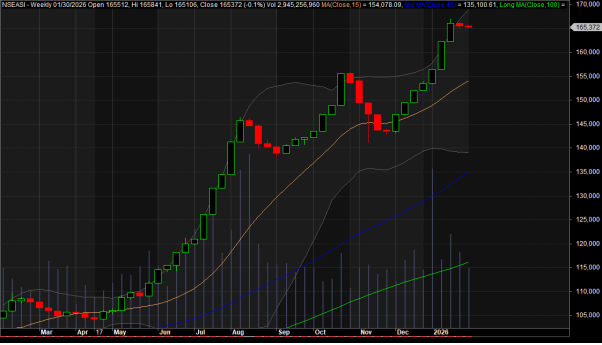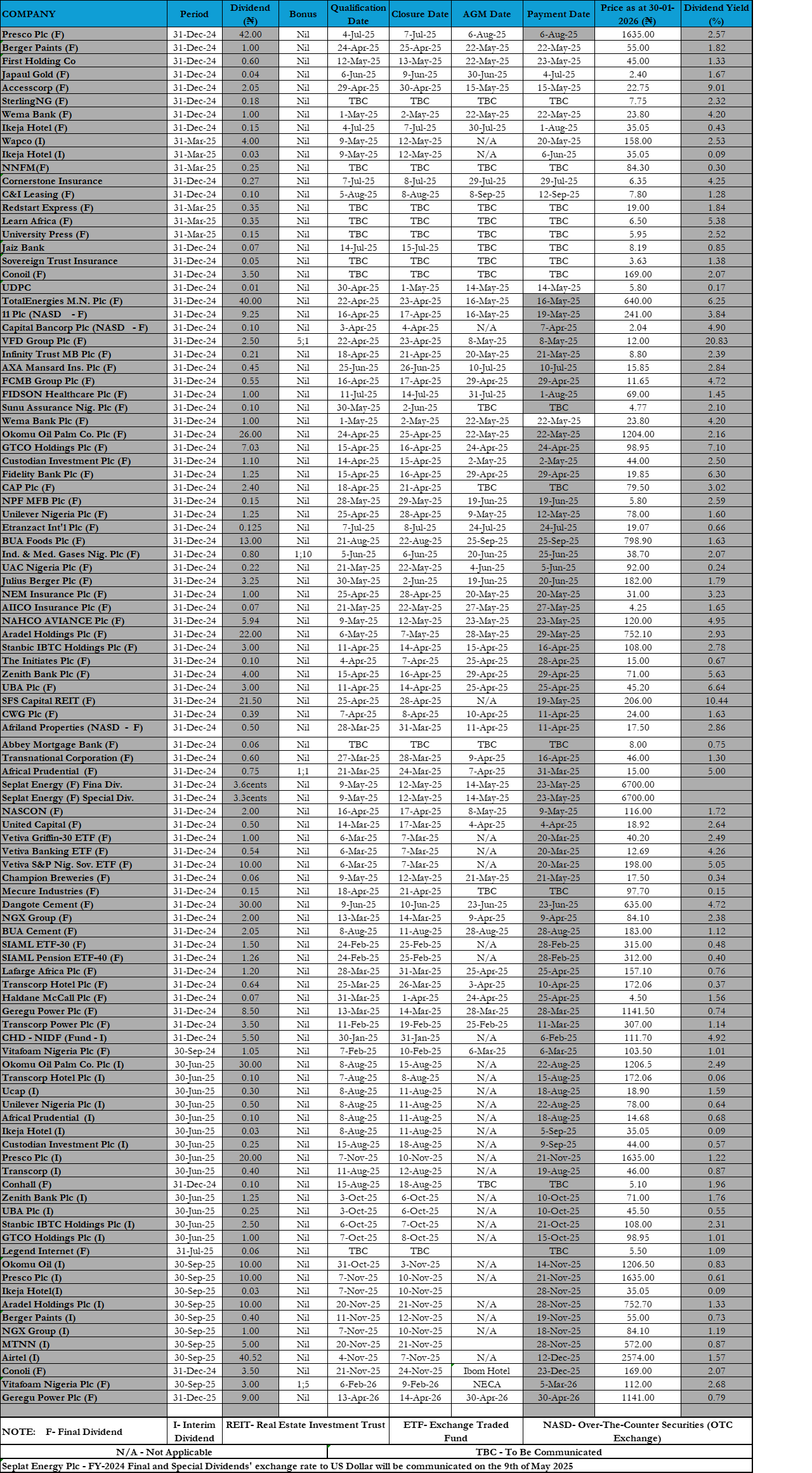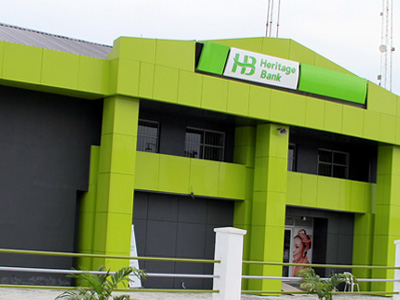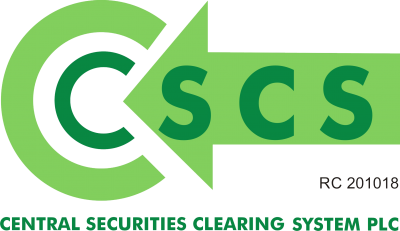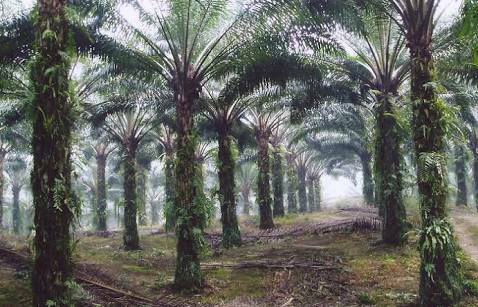
In what may be the result of its idling vegetable oil and tomato plants for straight two years, the board of NASCON Allied Industries (formerly National Salt Company), a member of the Dangote Group, on Friday presented the audited financials for the year ended December 31, 2018, showing declines across almost all measurement parameters for the period.
The board recommended a dividend per share of N1.00 for consideration and approval of shareholders at the annual general meeting, down from previous year’s N1.50 each.
Revenue from sale of edible, refined, bulk, industrial salt, seasoning, as well as services, dropped 4.78% from N27.064bn in 2017 to N25.769bn, out of which freight income for delivery of salt and seasoning fetched N4.084bn, up from N3.858bn in 2017.
Cost of sales inched 5.38% up from N17.07bn to N17.988bn; leaving gross profit at N7.78bn, down by 22.15% from N9.994bn.
A further breakdown showed that sale of salt remained its biggest business, contributing N20.761bn, down from N22.247bn in 2017, out of which N12.565bn was incurred in cost of sales, as against N11.62bn in prior year, leaving segment profit of N8.195bn from N10.627bn. It was followed by freight income of N4.084bn, compared to the previous N3.858bn, incurring N4.442bn costs in the process, resulting in a loss of N500.245m, down from N583.36m a year earlier. The seasoning segment was however better than freight business, contributing N924.167m income, N839.022m cost that left segment profit at N85.145m; which was a far cry from the profit of N125.732m recorded in 2017 from a lower revenue of N765.295m and N639.564m sales cost. The vegetable oil segment did not contribute to the top and bottom-line in 2018, unlike in 2017, when it contributed N192.904m, but incurred N335.623m as cost, resulting in a N142.719m loss. Tomato paste did not however report any revenue for the year, and yet there was N32.84m in cost and segment loss.
The lion’s share of cost of sales for the year was the N10.66bn for raw materials consumed, up from N10.148bn.
Investment income rose to N468.379m from N354.745m, out of which fixed deposit rose to N381.835m from N309.776m, while treasury bills yielded N86.11m, a significant rise from N44.298m in 2017.
Other income rose 159.07% up from N11.3m in the preceding year to N29.27m, boosted by the N20.672m from insurance claim, which climbed from N10.004m; while sale of scrap soared from N1.292m to N8.593m. Other operating gains stood at N841.85m, from a loss of N1.87m in 2017, which was driven by the N992.058m net foreign exchange gains which did not occurred in the prior year, the impact of which was blighted by the N150.213m losses on disposals, scrapping and settlements property, plant and equipment, up from N1.868m.
Distribution costs increased by 37.06% to N828.83m, from N604.72m, a breakdown of which showed that branding expenses gulped N489.49m, up from N426.946m and selling expenses, N339.336m from N177.772m. Administrative expenses stood at N1.868bn from N1.771bn, the biggest of which was the N757.215m employee costs, which rose from N671.412m; following which operating profit slipped 21.58% down from N7.626bn in the prior year to N5.981bn.
Investment income was up 32.03% from N354.75m to N468.38m.
Profit before tax fell 18.46% from N7.909bn to N6.449bn, while profit after tax fell 17.28% from N5.343bn to N4.42bn, translating to Earnings Per Share of N1.67, down from the previous N2.02, while the N1.00 dividend is subject to approval of shareholders at the annual general meeting slated for June 13, 2019, following which payment will be June 17, 2019. Qualification date is June 30, closing date for the purpose is slated for May 31 to June 3, 2019.
Meanwhile, the company’s external auditors- PriceWaterhouseCoopers, in its report on the audited financials drew attention to an impairment indicator in its books for which the directors have carried out an impairment assessment.
According to the auditors, listed among NASCON’s property, plant and equipment are cash generating units for the vegetable oil plant and tomato paste plant with a carrying value of N2.5bn as at December 31, 2018, which have remained idle, because the company is unable “to obtain feedstock required for production at commercially viable volumes.”
This, they noted, in their report to shareholders, the auditors believes that such impairment indicator, the directors have carried out an impairment assessment on the plants to determine the recoverable amount of the plants, based on the value in use.
Meanwhile latest reports say the company’s Kano-based tomato paste plant which has been idle for over two years owing to a supply disruption partly caused by a price dispute with farmers is resumed operations.
The 1,200 metric tons per day factory to meet domestic demand, reportedly restarted production last week processing about 100 tons a day.
According to Abdulkareem Kaita, managing director of Dangote Farms Ltd, the major challenge was the scarcity of tomato, because “the local tomato growers could not meet our production demand, we also could not agree with the farmers on the price of tomato per basket.”
Under a new deal with the farmers, the factory will buy tomatoes at prices pegged to what local markets are selling.
Dangote is also developing its own farms with a special tomato strain that could yield 60 tons per hectare, compared with the yield of 10 tons per hectare being recorded by the local farmers, Kaita said. The company plans to distribute the seedlings to growers to boost their output.


